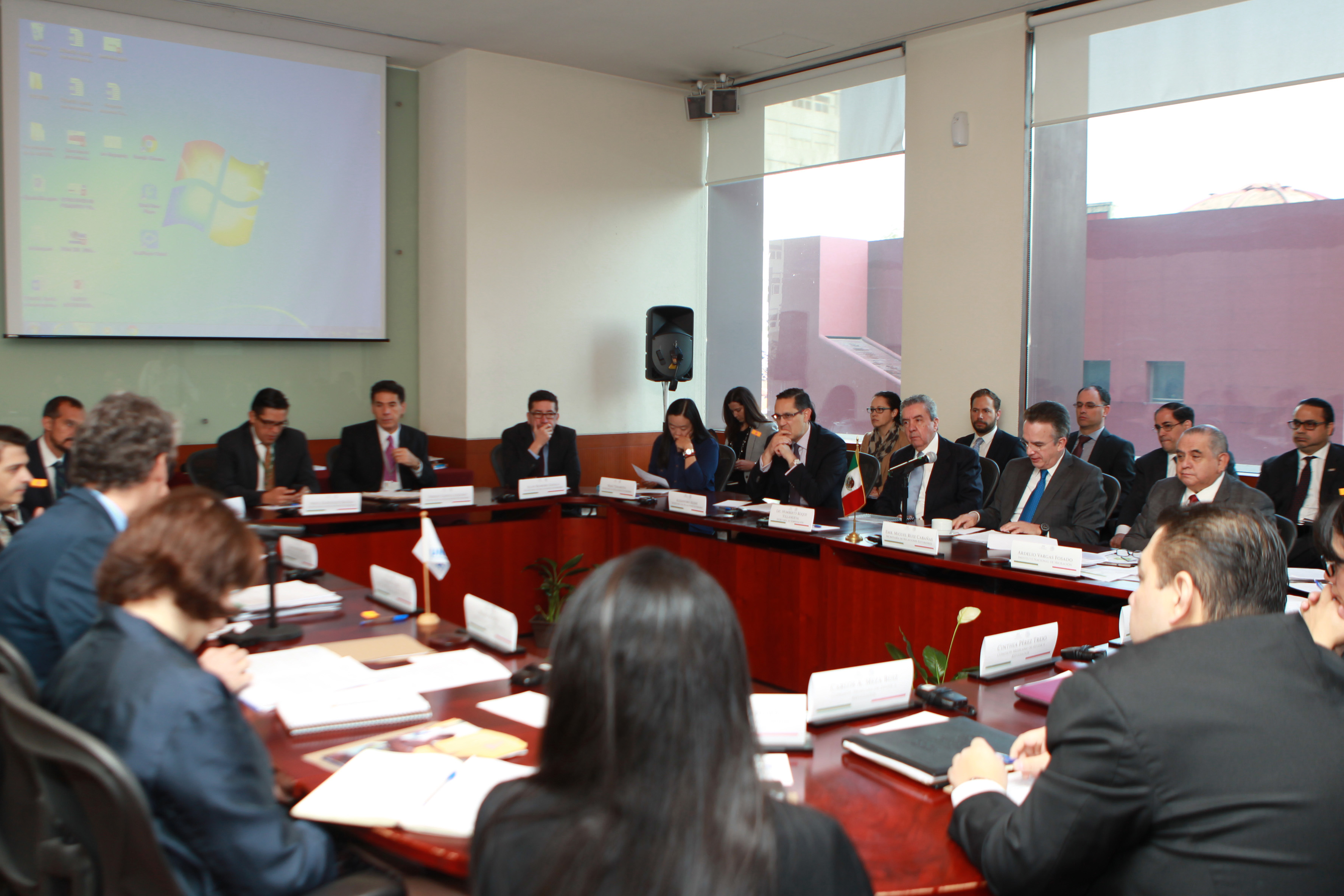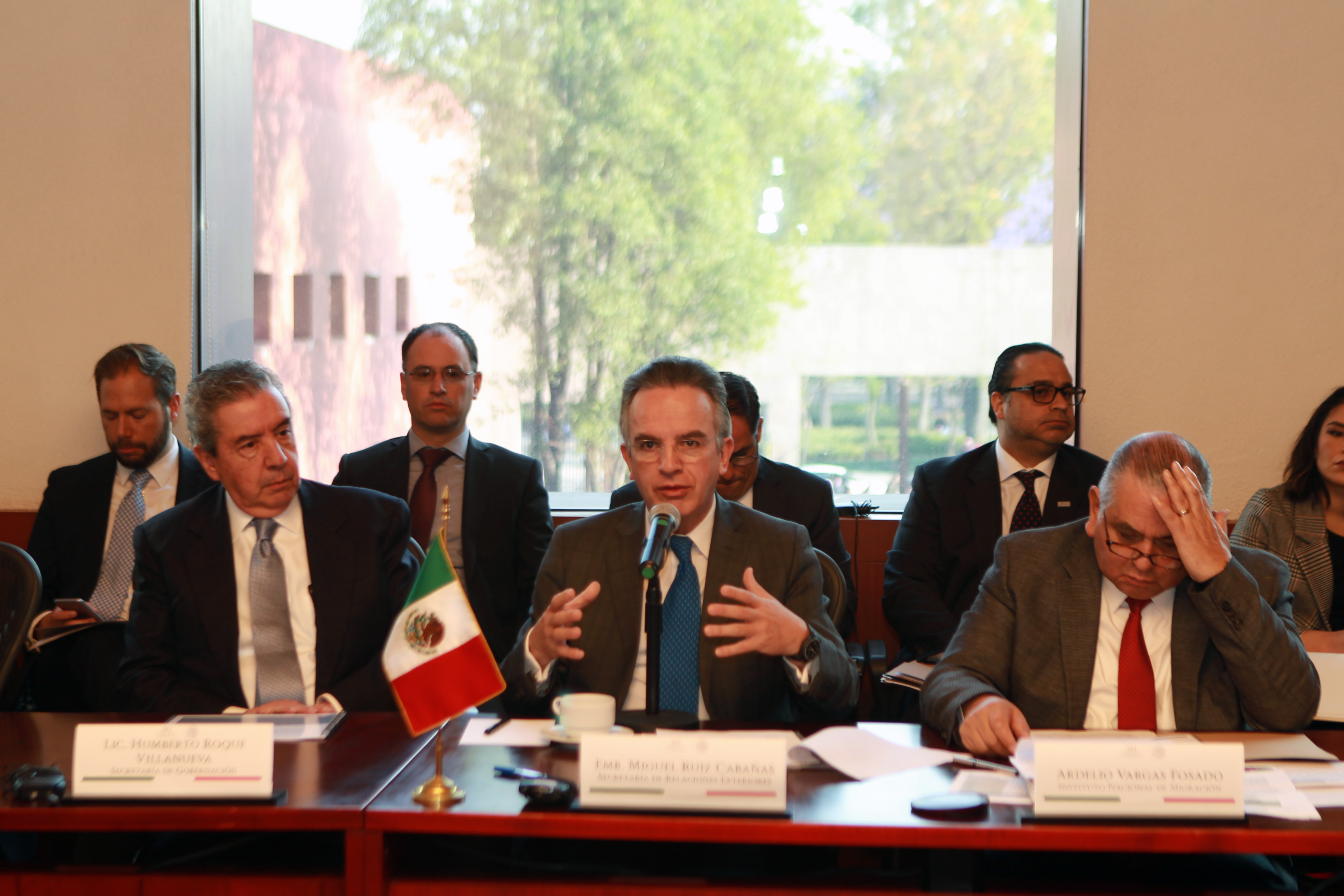The first Strategic Dialogue on Protection between the Mexican government and the United Nations High Commissioner for Refugees (UNHCR) was held on March 10. The meeting was co-chaired by the Foreign Ministry’s Undersecretary for Multilateral Affairs and Human Rights, Ambassador Miguel Ruiz Cabañas; the Undersecretary of Population, Migration and Religious Affairs, Humberto Roque Villanueva; The Interior Ministry’s head of its Migration Policy Unit, Ramón Ramírez Valtierra; the Commissioner of the National Migration Institute, Ardelio Vargas Fosado; and the Executive Secretary of the National System for the Comprehensive Protection of Children and Adolescents, Ricardo Bucio Mújica, with the participation of officials from the Mexican Commission for Refugee Assistance (COMAR). The UNHCR delegation was led by the Assistant High Commissioner for Protection, Volker Türk, who was accompanied by the UNHCR Representative in Mexico, Mark Manly.
During the discussion, both sides reaffirmed their interest in continuing and strengthening the programs in Mexico and in the region that provide protection to refugees, the beneficiaries of complementary protection and applicants for refugee status. They also underscored the principles of human rights and international law for refugees as key to implementing related public policies.
The participants also followed up on the commitments announced by President Enrique Peña Nieto during the Summit of Leaders held in New York in September 2016 and the commitments made by Mexico under the Declaration of San José, adopted in July 2016.
Both sides agreed it was important to continue cooperating to effectively address the challenges in this area and they specifically discussed the progress, efforts and persistent challenges to providing access to fair and efficient procedures for recognizing refugee status; lodging alternatives for people seeking refugee status; protecting child and adolescent applicants; and unaccompanied refugees; as well as lasting solutions for refugees in Mexico, particularly regarding their integration into and work possibilities within the host communities located in different parts of the country.
Both UNHCR and the Mexican government committed to continuing their work with the various organizations that work with refugees—the Mexican Commission for Refugee Assistance (COMAR), the National Migration Institute, the Migration Policy Unit and the Federal Attorney’s Office for the Protection of Children and Adolescents—to improve coordination with state and municipal authorities and to strengthen the ties with civil society organizations and the extensive network of refugee shelters in Mexico.
They also discussed their efforts to provide a coordinated regional response to the increasing number of people requesting refugee status, especially in regard to the individuals arriving from Central America’s Northern Triangle.
They identified ways to improve their ability to deal with foreigners requesting refugee status and additional assistance, and they committed to providing clear information on how to request refugee status in Mexico, as well as its scope, prior to their arrival in Mexico.

